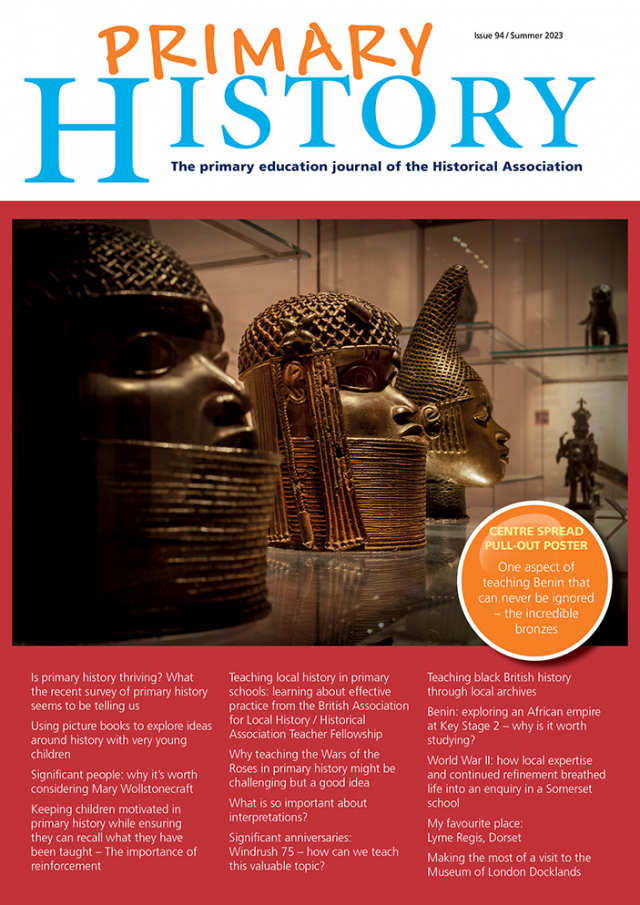Primary History 94: Out now
The primary education journal of the Historical Association

Editorial
It may be tempting to imagine that a stream of good authors send in a range of articles and all that is needed is to tidy them up a bit and publish. If this were the case there would be no need for an editorial board. For a start, relying on a balanced range of articles is a hostage to fortune. Articles, often of huge promise, do reach us but we always want more and quite often they appear at the wrong time.
This is because each edition aims at satisfying a range of needs and interests. In the primary history sector, that is wide – trainee teachers, experienced teachers, early career teachers, subject leaders, those with a history qualification and the many without, those involved with a range of different ages from EYFS to those interested in primary-secondary transition, appropriate history for different pupils – SEND, EAL, higher attainers. Plus of course all those such as the many colleagues at historical sites, museums and archives who support history in schools. That is before looking at the topics of articles and deciding whether teachers want ideas about the conventionally popular themes or something more innovative. The end result is often a mixture aimed at reinforcing good practice but supporting further development. The mixture extends to articles that try to offer practical teaching ideas and resources alongside possibilities for further thinking.
Hopefully this edition maintains that balance while inevitably never satisfying every reader 100%. We are helped by knowing a lot more about primary history through the HA’s latest survey which probably provides the most comprehensive up-to-date picture of what is happening with history in primary schools. This edition outlines what seems to be the current picture.
This edition also looks at very different primary content – at a global level the remarkable kingdom of Benin as well as the way ancient civilisations can be better understood and at the other end of the scale articles looking at the role and importance of local history. No apologies for this as it helps commemorate the successful completion of the Local History Teacher Fellowship. The national situation is addressed through guidance on teaching the unusual but valuable topic of the Wars of the Roses. The pages of this journal often look at a significant individual. This edition is no exception, with a look at Mary Wollstonecraft. The survey threw up some interesting facts about the teaching of disciplinary concepts and the need for more guidance. This edition looks at one of the most challenging concepts in primary settings – interpretations.
We hope you find much of interest in this edition. Maybe the editorial board are missing something important or innovative that you would love covered. Let us know – ideally you might be willing to have a go at penning something. It is a joy to all of us on the editorial board when we see something that gets us excited and thinking.
Contributions to Primary History
Letters, articles and other contributions to the magazine are welcome. Find out more

